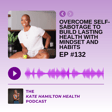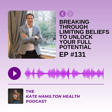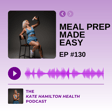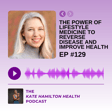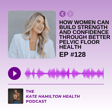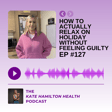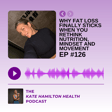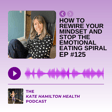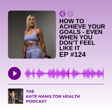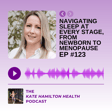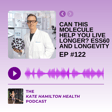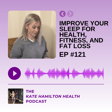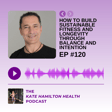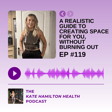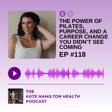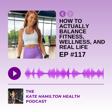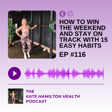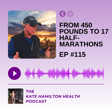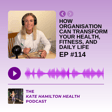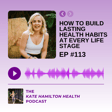
#107: Ellen Johnston: Unlearning diet culture and redefining health on your terms
Have you ever felt like diet culture has shaped the way you see health and fitness? Or wondered how to build true confidence in your body - beyond the number on the scale?
In this episode of The Kate Hamilton Health Podcast, I sit down with Ellen Johnston, a 21-year-old online health and wellness coach with a powerful story. From playing Gaelic football at a high level to facing a life-changing injury at just 16, Ellen’s journey is one of resilience, growth, and redefining what it means to be truly healthy.
We chat about the mental and physical toll of injury, the pressure of diet culture, and how strength training became a tool for confidence rather than control. Ellen also shares her take on deep health, balancing nutrition without obsession, and why she made the decision to go alcohol-free.
If you're looking for an inspiring conversation about overcoming setbacks, shifting your mindset, and taking a proactive approach to health, this episode is for you.
Episode Highlights:
[00:00] – Welcome to The Kate Hamilton Health Podcast
[00:12] – Meet Ellen Johnston: From Gaelic Football to Wellness Coaching
[02:58] – The Injury That Changed Everything
[06:03] – The Road to Recovery & Embracing a New Path
[07:21] – Ellen’s Approach to Proactive Health & Fitness
[11:36] – Navigating the Fitness Industry as a Young Coach
[17:53] – Personal Growth, Mindset Shifts & Lifestyle Changes
[24:14] – Breaking Up with Diet Culture & Toxic Food Rules
[24:59] – Finding Balance: Nutrient-Dense vs. Processed Foods
[26:32] – Practical Tips for Increasing Protein Intake
[28:33] – The Role of Protein in a Balanced Diet
[31:45] – Calorie Counting: When It Helps & When It Hurts
[36:58] – Strength Training After Injury: Rebuilding Confidence
[41:05] – Why Ellen Chose an Alcohol-Free Lifestyle
[48:44] – Defining Health: What It Really Means to Live Well
Links & Resources:
- Connect with Ellen on Instagram here
If you enjoyed this episode, please subscribe, leave a review, and share it with friends who might benefit. For more health and fitness tips, follow me on Instagram and TikTok @katehamiltonhealth.
Music b LiQWYD Free download: hypeddit.com/link/xxtopb [http://hypeddit.com/link/xxtopb] Promoted by FreeMusicPromo [https://www.youtube.com/channel/UCbycji-eySnM3WD8mbxPUSQ] / @freemusicpromo
